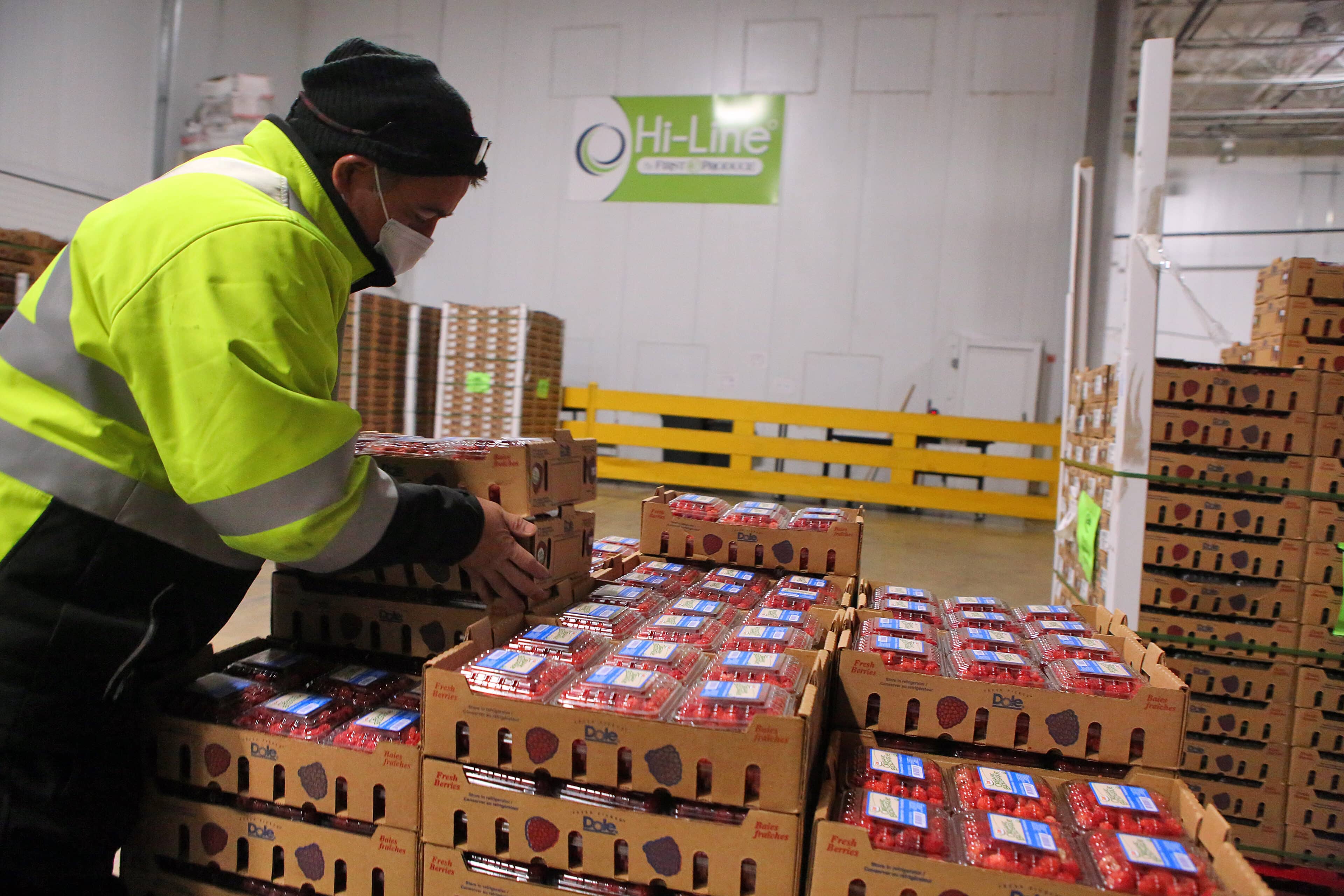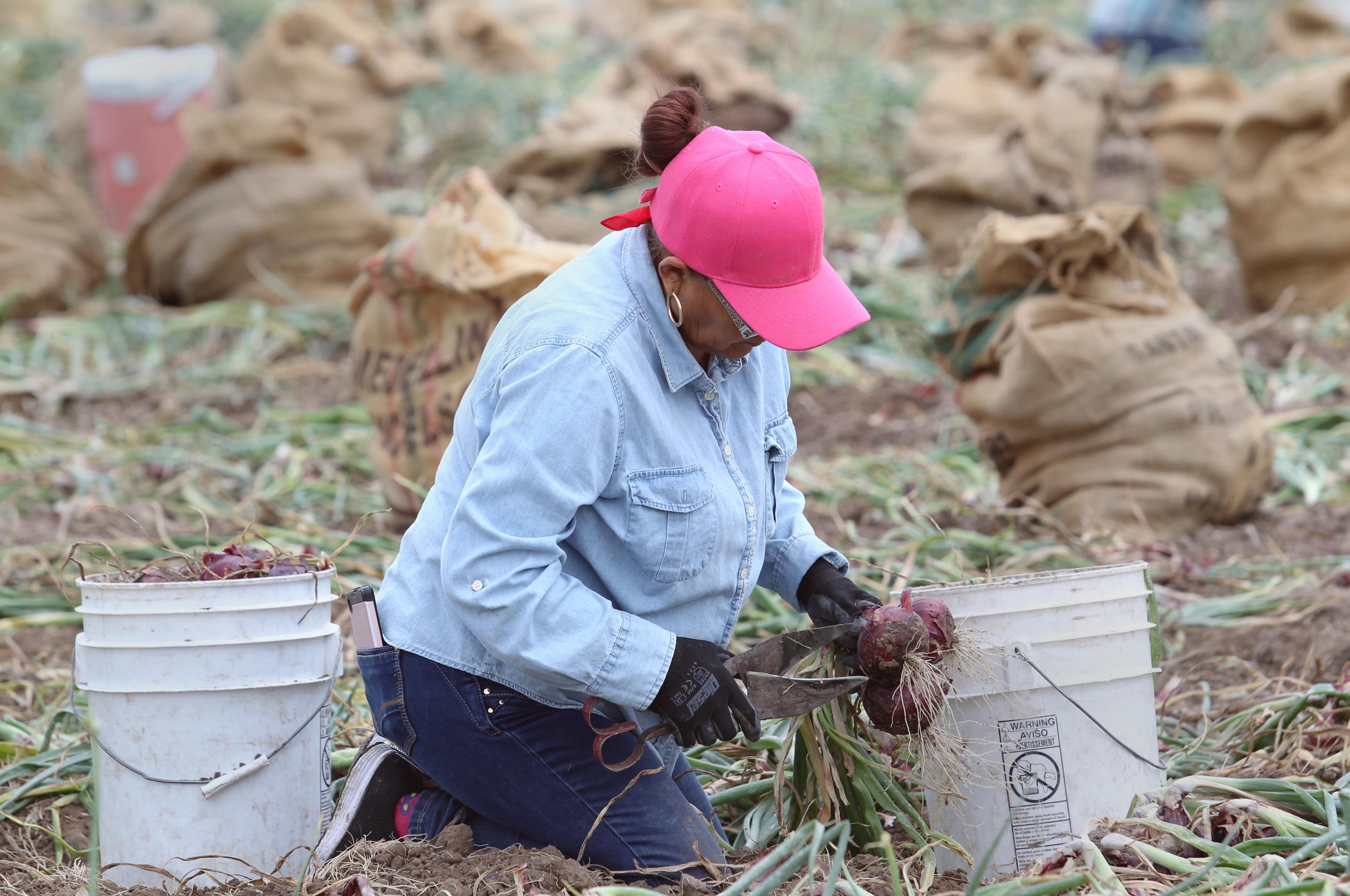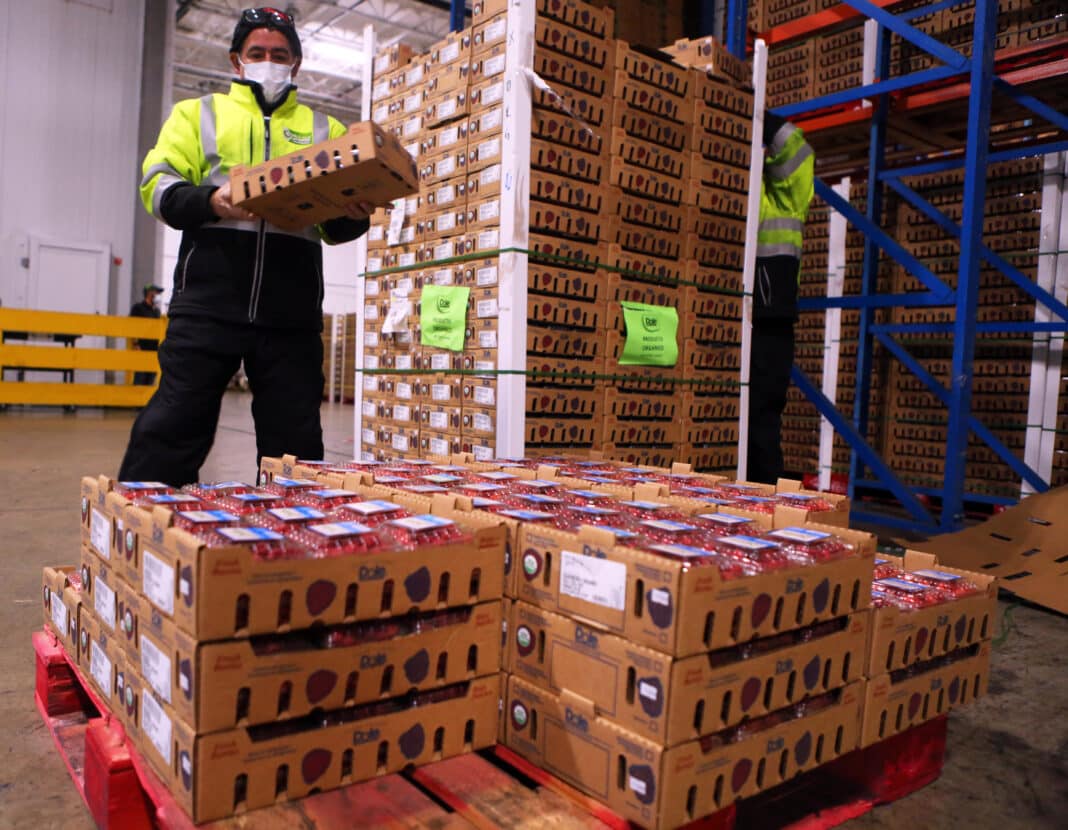McALLEN — Agricultural workers have been working side by side under extreme conditions to keep food on the American table during the COVID-19 pandemic, and even though the federal government designated them essential workers, Texas has not — at least when it comes to vaccinations.
Local fresh produce workers feel forgotten as the state adds more categories, such as teachers and those over 50 years old, to its vaccine priority list, which delineates who is eligible to receive the injections.
Frustrated by the state’s refusal to add agriculture to the list, local produce workers look with envy at other states like Arizona, California, Michigan and Ohio, where their counterparts have been designated essential and are therefore eligible to receive the vaccine.
“Fresh produce isn’t handled mechanically,” Texas International Produce Association CEO and President Dante L. Galeazzi said earlier this week. “A lot of it needs to be harvested by hand. I’d say probably 90% of it grown in Texas is hand-harvested, and from there it’s then hand-processed — packing, washing, grating, sorting, cutting, sizing, etcetera.”
And it all has to be done before the food goes bad.
“Texas has about 6,000 farms that handle fresh produce, and those 6,000 farms hire 30,000 people every year,” the association president said.
Then there’s also the import business, and the Rio Grande Valley leads the nation in this.
“Pharr, Texas is the largest importing bridge of fresh produce in the U.S.,” Galeazzi said, noting that last year, approximately 300,000 loads of fresh fruits and vegetables were sent across the Texas-Mexico border.
“The import fresh produce industry has about 7,400 people directly employed in it as well,” he said. “So basically, between those two entities, you’ve got just shy of 40,000 employees, and that’s just fresh produce. That doesn’t include corn, cattle, horses, feed, all of that.”
Galeazzi has been pushing the state to prioritize fresh produce workers, but the Texas Department of State Health Services committee that makes those recommendations, known as EVAP or the COVID-19 Expert Vaccine Allocation Panel, hasn’t budged.
Galeazzi’s association teamed up with Texas Citrus Mutual and the Texas Valley Citrus Committee to send EVAP a letter in January, when states were deciding how to roll out vaccines and who should be first in line.
“The CDC back in December said that food and agricultural workers, being part of critical infrastructure, were essential, were front-line and should be among the 1B group to receive vaccines,” Galeazzi said about the Centers for Disease Control and Prevention. “Then (EVAP) made an announcement in January and they said, ‘OK, we’re only going to open it up to the 65 years and older and anybody with chronic health conditions.’ Everyone agreed, said it made sense.
“But then from there is where we start to have this deviation, and EVAP has decided on their own process for selecting eligible candidates — agriculture is not among them.”
State Sen. Eddie Lucio Jr., D-Brownsville, is one of 17 members on the EVAP committee.
“I haven’t heard from our agricultural community that much,” Lucio said Wednesday. “I certainly had at the beginning brought them up because I ran into one or two people who did have a concern about making sure they weren’t left by the wayside.”
Lucio acknowledged the importance of protecting the food chain industry.
“There’s no doubt that they’re essential workers and they obviously contribute so much for the welfare of our people, and quite frankly, they feed our communities. They put food on the table and they honestly should be taken into consideration,” he said.
The state, however, is prioritizing seniors and teachers, he said.
“I certainly want everyone to get their vaccination if they’re willing to take it, obviously, but I can’t promise anybody anything,” he said. “I’m just one of so many members of the panel. There’s a little over 12 of us that come together and give recommendations.”
Some vaccine providers follow those recommendations, others don’t, he said. Lucio himself made headlines in December when he received a surplus COVID-19 vaccine at Doctors Hospital at Renaissance. At the time, Lucio was not yet eligible to receive the vaccine, but so many hospital staff had initially declined to receive it, that the hospital opened up the vaccinations to first responders and others.
“I’ll definitely bring it up to the panel to see where we are in that regard,” Lucio said about adding agricultural workers to the vaccine list. “Right now, seniors are at the forefront and teachers are also coming on strong, but pretty soon we’re going to have mass vaccinations. I see it coming sooner than later and that makes me feel pretty good about things.”
Jose Alberto Sevilla, a salesman at Produce Connection in McAllen, hopes Hidalgo County can emulate Santa Cruz County in Arizona, which allowed its produce workers to register for the vaccines. Home to the city of Nogales, the county also has a thriving fresh produce industry.

“I’ve seen a big push for other types of workers, and we as an industry — as the produce industry here — I think and I feel we have been forgotten,” Sevilla said. “I’ve seen in other places like Nogales, Arizona, they went into the facilities and vaccinated all their staff.”
Santa Cruz County Health Services Director Jeff Terrell said Arizona listed agricultural workers under the 1B category and the county simply followed those guidelines.
“It’s an essential workforce here, a major industry hub going through here,” Terrell said. “So that’s how we based it on meeting the essential worker criteria.”
Hidalgo County Judge Richard F. Cortez said his hands are tied because of the state’s guidelines.
“We receive (vaccines) with the stipulation that they be used for these certain priorities that the state of Texas decided that that’s what they wanted to do,” he said. “We, the county, have to abide by those conditions.”
Ag workers aren’t the only ones clamoring for a vaccine.
“So this is a plea that is constantly coming to us from all over,” Cortez said. “When you have a very short supply of vaccines, it’s very difficult to prioritize them because everybody can make an argument that they need to be vaccinated.”
Still, he did not downplay the role these workers play, especially for a county that sits on the border.
“I know, myself, how important it is for us to have that flow of fruits and vegetables coming from Mexico, because at least — at least — 65% of everything we consume in Texas in fruits and vegetables come from Mexico,” he said. “Am I amenable to having a discussion? Of course. But the person or the authority who makes those priorities is the governor and the state of Texas. We follow it.”
Sevilla and Galeazzi said fresh produce workers can’t afford to wait.
“Many of these people depend on their weekly paycheck. They can’t afford to get sick,” Galeazzi said. “Many of them are already down to one (parent)… cause the other is probably staying at home while the kids do virtual school. So they certainly can’t afford that one working parent to get sick.”

They also don’t have time to physically wait in line because of the nature of their work. Most work six days a week in grueling temperatures — whether it’s in triple-digit heat or in frigid warehouses to keep produce fresh.
“They work here from 10 (a.m.) to, I don’t know, sometimes 10 (p.m.) and none of them have time to step out for the day and (say), ‘Let me see if I can get an appointment today for the next week and see if I can get vaccinated,’” Sevilla said. “We just don’t have time to spare to let these people go and lose one day or whatever to see if (they) can get a spot.”
Most people don’t understand how the industry operates, he said.
“So that’s why we decided to do this kind of campaign and just bring awareness to what we do, because most of the time, or the majority of the time, people don’t know what happens behind the pound of tomatoes that they bought at HEB or Walmart,” Sevilla said. “Everyone is working around the clock. Even with the changes in the food industry, the restaurants and the schools everywhere, even though all of that closed, we remained open and working 24/7.
“So it is hard for us to see our people in this (condition). I mean, what can we do to help? That’s why we’re pushing this.”




